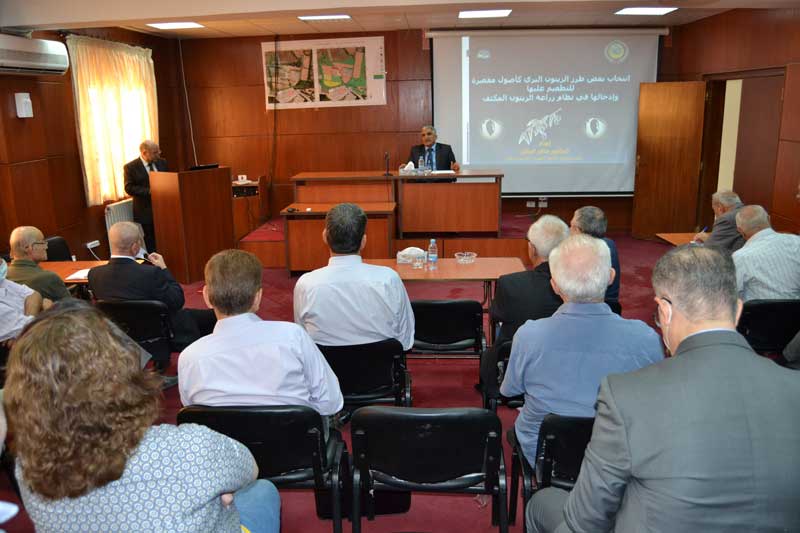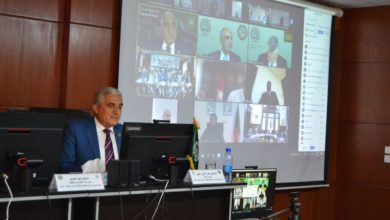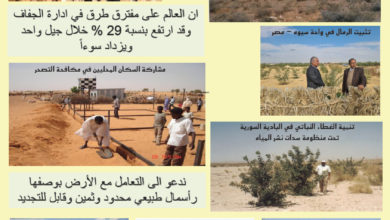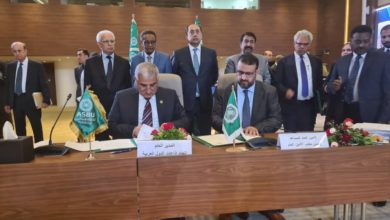selection of some wild olive varieties //scientific presentation at ACSAD
The head of the fruit trees program at the Arab Center for the Studies of Arid Zones and Drylands (ACSAD), the researcher Dr. Saher Bakir, presented a comprehensive research on “the selection of some wild olive varieties as the short origins for grafting and including them the intensive olive cultivation system” recently at ACSAD headquarter in Damascus.
The research clarified that olive cultivation is one of the oldest Mediterranean basin plantations that a person undertakes to secure the food he needs, and its history is mixed with the history of the peoples who made it a blessed tree, a symbol of peace, and a source of permanent wealth.

He said:” This is a nutritional and healthy tree, its cultivation has spread worldwide, where the number of olive trees in the world estimated 750 million olive trees, 95% of them in the Mediterranean region.
He emphasized that since the end of the Second World War, social and technological changes have gradually been modified to the concentration and development of olive groves and oil production, as well as the development of commercialization, promotion, and distribution to meet the growing demand for good Virgin olive oil.
The researcher pointed out that these changes have led to the creation of new agricultural systems developed for mechanization of harvesting purposes to achieve high productivity and quality of olive oil commercialized in a global market.
Moreover, he clarified that the current expansion of olive cultivation and the high cost of agricultural services provided to it; required to apply a new strategy, which based on the development of new low-growth varieties compatible with the intensive cultivation system, or grafting of varieties on short internodes to deficient origins affect their role in reducing the activity of theses varieties mitigation, in turn, affect the mitigation of the activity of these varieties and could be suitable for such cultivation system, and tolerant to environmental conditions and biotic and abiotic stresses.
He also noted that this applied scientific research aims to select some wild models with short internode to be used as shortened assets, and rooting some of the shortened selective assets that may be suitable for intensive cultivation with young cuttings using different concentrations of Indole Butyric Acid IBA hormone and identifying the appropriate concentration for that.
Also, studying the impact of some growth improvements with different concentrations to prepare the new seedlings of rooting for the grafting in the shortest time possible time; and monitoring and recording the vegetatively propagated assets’ infection with insects and diseases spread in the region.
In addition to grafting some Syrian economic olive varieties, such as Al-Sourani and Al-Qaisi, on the selected propagated assets, evaluating the productive efficiency of the local varieties grafted on wild assets compared to the global varieties used in intensive agriculture (Arbosana and Kornaki), and studying the economic feasibility of cultivating these stocks and varieties.
The presentation was attended by the Director-General of ACSAD organization Dr. Nasr Edin Obaid, the concerned experts of ACSAD, and many interested people who provided interventions, suggestions, and some ideas and additions that enriched the research and its desired goals.



